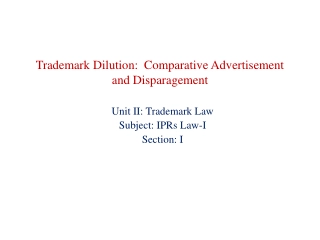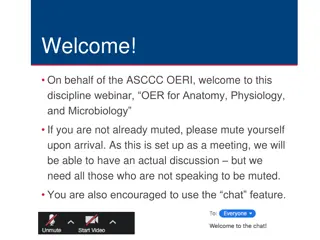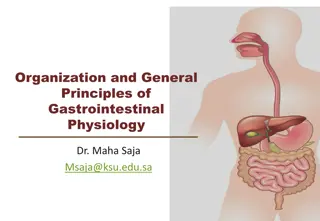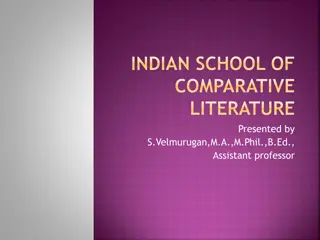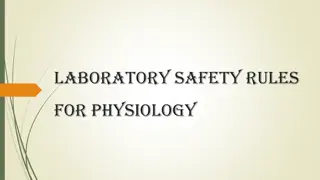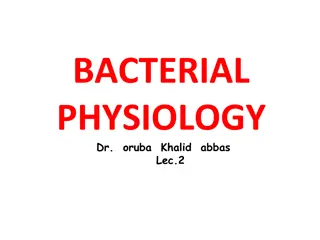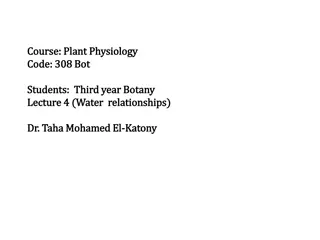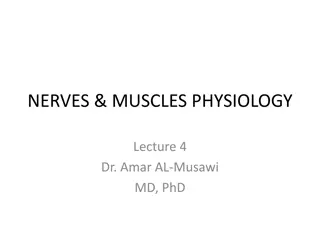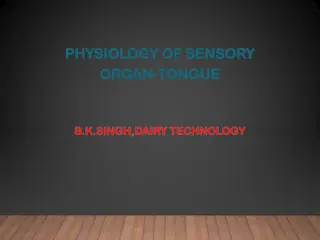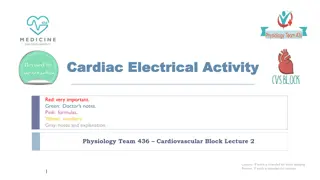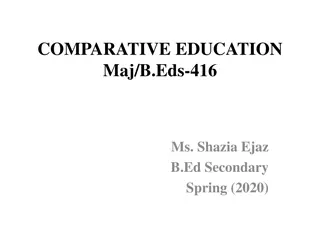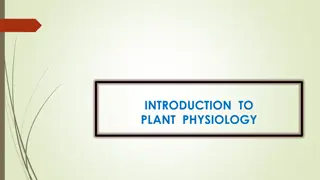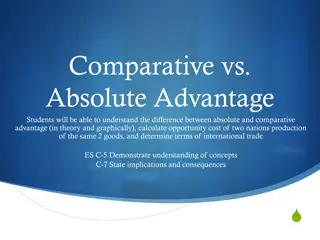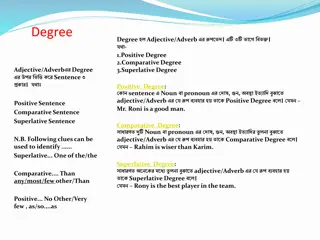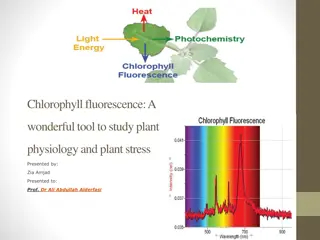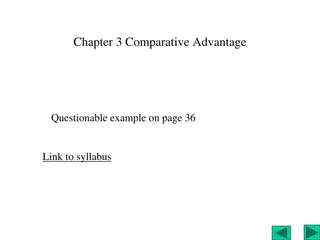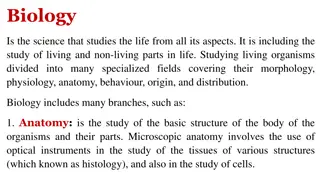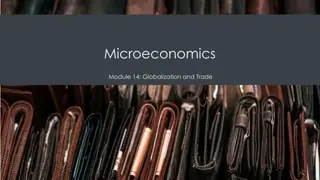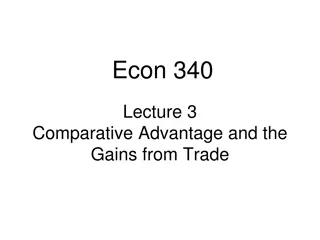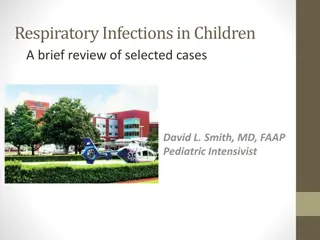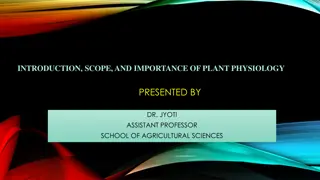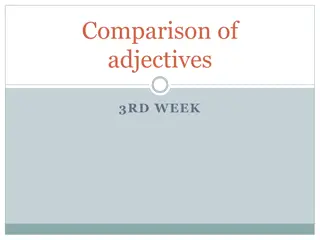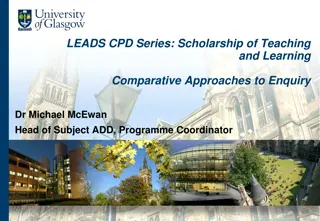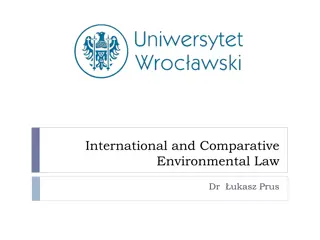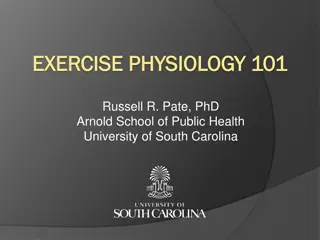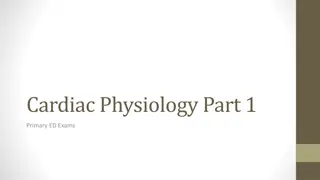Physiology of Pain
The physiology of pain, including its definition, types, causes, nociceptive pathway, transmission, and more. Gain a comprehensive understanding of pain terminology and different phases of nociceptive pain.
13 views • 40 slides
Trademark Dilution and Comparative Advertisement
Trademark dilution and comparative advertisement in trademark law. Understand the grounds for trademark infringement and the elements needed to establish dilution or disparagement. Explore the importance of protecting registered trademarks and the limitations of comparative advertisement.
0 views • 6 slides
Comparative Analysis of Positive Charge's Charging Stations Evolution
This PowerPoint template example created by Romy Bailey for Positive Charge showcases a comparative study of high-speed charging stations versus traditional charging stations, along with a comparison of past year versus current year data, and a year-over-year analysis of Positive Charge's growth. It
1 views • 6 slides
Anatomy and Physiology of the Larynx: Overview and Cartilages
Exploring the anatomy and physiology of the larynx, this content discusses the location, movements, and cartilages of the larynx. Details on the unpaired (thyroid, cricoid, epiglottis) and paired (arytenoid, corniculate, cunieform) cartilages are provided, along with their functions and characterist
9 views • 17 slides
Comparative Sociology
Comparative Sociology is a specialized branch that compares societies to provide generalizations, focusing on the structure and jurisdiction of groups and organizations. It involves studying affinities and disparities to predict outcomes. The discipline is closely related to Social Anthropology. Com
3 views • 15 slides
ASCCC OERI Webinar on OER for Anatomy, Physiology, and Microbiology
Welcome to the ASCCC OERI webinar focused on Open Educational Resources (OER) for Anatomy, Physiology, and Microbiology. This event discusses the adoption of OER in California Community Colleges, challenges faced in Anatomy and Physiology, available resources, and potential strategies to increase OE
0 views • 20 slides
Essential Overview of Gastrointestinal Physiology
Exploring the organization and general principles of gastrointestinal physiology, this content covers the anatomical and functional aspects of the GI system, including smooth muscle characteristics, neural control, blood flow, nutrient absorption, waste excretion, and regulatory functions like immun
0 views • 46 slides
Insights into the Indian School of Comparative Literature: A Comprehensive Overview
The Indian School of Comparative Literature, pioneered by Dr. Buddhadeva Bose in 1956 at Jadavpur University, plays a crucial role in studying the diverse languages and rich literary traditions of India. This academic discipline has grown significantly, with a focus on French symbolist poetry's infl
2 views • 14 slides
Laboratory Safety Rules for Physiology
Ensuring safety in the physiology laboratory is paramount. Adhering to the set rules is crucial to prevent accidents and ensure a productive learning environment. Rules include proper handling of chemicals, wearing appropriate attire, avoiding lab access without supervision, and respecting lab equip
1 views • 14 slides
Understanding Bacterial Physiology and Growth
Bacterial physiology encompasses the growth, nutrition, and metabolism of bacteria. Bacterial growth involves binary fission, generation time, colony formation, and is influenced by various factors such as temperature, atmosphere, moisture, and radiation. Understanding the classification based on te
0 views • 33 slides
Understanding Water Relationships in Plant Physiology
Water plays a crucial role in the physiology of plants, with most absorbed water being translocated to leaves and lost through transpiration and guttation. While essential for turgidity and mineral translocation, plant water use is often inefficient. Transpiration is the primary mode of water loss,
3 views • 22 slides
Understanding Nerves and Muscles Physiology - Lecture Insights
Explore the intricate processes of synaptic transmission, neurotransmitters, spatial summation, temporal summation, chemical substances acting as neurotransmitters, and the effects of various factors and drugs on synapse function. Delve into the clinical significance of sedative-hypnotic drugs and t
0 views • 11 slides
Understanding the Physiology of the Sensory Organ - Tongue by B.K. Singh
Taste perception on the tongue is a vital sensory function involving sweet, sour, salty, and bitter sensations. The tongue, with its muscular movements and taste buds, plays a crucial role in mastication, swallowing, and food enjoyment. Different types of papillae on the tongue are responsible for t
4 views • 33 slides
Understanding Cardiac Electrical Activity in Physiology Team's Cardiovascular Block Lecture
Dive into the intricate details of cardiac electrical activity in this lecture led by Physiology Team 436. Explore topics like the cardiac conductive system, action potentials, refractory periods, excitation-contraction coupling, and the effects of autonomic stimulation on heart electrophysiology. D
0 views • 29 slides
Comparative Adjectives: Short Adjectives and Usage
Comparative adjectives are used to compare two things, such as the length, size, or appearance. They can be formed by adding -er to short adjectives like big, long, thin, short, and pretty. When the adjectives end in -y, change the -y to -i and add -er. Use "than" to compare two things in the same s
5 views • 10 slides
Understanding Comparative Education: Scope and Aims
Comparative education involves studying educational theories and practices across different countries to analyze the relationship between education and society. It aims to explain educational systems, aid in the development of institutions, and form generalized statements applicable in various natio
0 views • 31 slides
Introduction to Plant Physiology: Exploring the Functioning of Plants
Plant physiology is a crucial subdiscipline of botany that delves into the processes and functions operating within plants. This field closely examines areas like plant morphology, ecology, cell biology, and genetics, shedding light on vital processes such as photosynthesis, respiration, and more. T
1 views • 7 slides
Understanding International Trade: Benefits, Specialization, and Comparative Advantage
International trade involves benefits and issues, with specialization playing a key role in driving economic patterns through resource distribution. David Ricardo's theory of comparative advantage revolutionized trade by focusing on producing goods efficiently. Absolute advantage and comparative adv
0 views • 12 slides
The Importance of International Trade: Benefits and Comparative Advantage
Nations engage in trade to exchange goods and services across borders, benefiting from comparative advantage to produce efficiently. Comparative advantage theory highlights the efficiency gains when each nation focuses on what it does best. Importing and exporting goods and services allow countries
0 views • 10 slides
Understanding Comparative and Absolute Advantage in International Trade
Understand the concepts of absolute and comparative advantage through theory, graphical illustrations, and opportunity cost calculations for two nations. Explore the implications and consequences of these concepts in terms of international trade. Specialization, division of tasks, and gains from tra
0 views • 15 slides
Examples of Superlative and Comparative Forms
The content includes examples of superlative and comparative forms, along with positive constructions. Images are used to illustrate each example, making it easy to understand the concepts. Different scenarios are presented to demonstrate the usage of superlative and comparative adjectives in senten
0 views • 42 slides
Understanding Degrees of Adjectives and Adverbs
This content explains the concept of positive, comparative, and superlative degrees of adjectives and adverbs in English grammar. It provides rules and examples for transforming positive into superlative, positive into comparative, comparative into positive, comparative into superlative, and more.
0 views • 8 slides
Understanding Chlorophyll Fluorescence in Plant Physiology
Chlorophyll fluorescence is a powerful tool developed in the 1990s for studying plant physiology and stress. It provides insights into photosynthetic processes at different levels, from subcellular to canopy. By measuring chlorophyll fluorescence, researchers can assess the efficiency of photosynthe
0 views • 16 slides
Understanding Comparative Advantage in Economics: Adam Smith and David Ricardo
Explore the concepts of absolute advantage versus comparative advantage as discussed by renowned economists Adam Smith and David Ricardo. Discover how free market principles, self-interest, and efficient resource allocation shape beneficial economic decisions. Delve into examples of comparative adva
0 views • 13 slides
Comparative and Superlative Adjectives Usage Guide
Discover how to form and use comparative and superlative adjectives to compare two or more nouns. Learn the rules for adding -er or -est endings, using "more" or "most," and irregular adjectives like "good" and "bad." Follow step-by-step formulas to create sentences with comparative and superlative
0 views • 11 slides
Exploring the Fascinating World of Biology and Human Biology
Biology is a broad scientific field encompassing the study of living organisms and their various aspects, from anatomy and physiology to genetics and evolution. Branches of biology include anatomy, histology, cytology, physiology, embryology, genetics, molecular biology, biochemistry, zoology, botan
0 views • 21 slides
Overview of Appendicular Skeleton and Bones by Dr. Mahdi H. Hammadi, PhD, Sc. Clinical Physiology
Dr. Mahdi H. Hammadi, PhD, Sc. in Clinical Physiology, provides an insightful look into the bones of the appendicular skeleton, including the shoulder girdle, upper limbs, wrist bones, and hand bones. The text covers the composition and functions of these skeletal elements in a comprehensive manner,
0 views • 21 slides
Comparative and Superlative in Pennsylvania Dutch 101
Covering the formation of comparative and superlative forms in Pennsylvania Dutch (PD), the content explains how PD adjectives add endings and change stem vowels to express comparison. It discusses irregular adjectives and provides examples to practice forming comparative forms in PD phrases.
0 views • 11 slides
Comparative Law: Research, Analysis, and Resources
Explore the world of comparative law through research and study of legal systems, including Italian and foreign laws. Delve into comparative legal analysis, characteristics of legal systems, and the study of legal sources. Discover in-depth insights from a variety of books and academic journals, as
0 views • 36 slides
Understanding Globalization, Trade, and Comparative Advantage in Economics
Globalization and trade play a crucial role in the interconnected world economy. This module explores the gains from international trade, barriers to trade, costs of globalization, and the concepts of absolute and comparative advantage. Absolute advantage is when a country can produce a good using f
0 views • 27 slides
Understanding Comparative Advantage and Gains from Trade
In this lecture on comparative advantage and gains from trade, the concept of why countries trade, price differences, supply and demand, the Ricardian model of trade, identifying comparative advantage, and critiques of comparative advantage are discussed. The benefits of free trade and how it leads
0 views • 53 slides
Pediatric Respiratory Infections: An Overview of Cases and Physiology
This review delves into selected cases of respiratory infections in children presented by Dr. David L. Smith, focusing on the anatomical and physiological aspects of the pediatric airway and respiratory system. It discusses respiratory failure in infants and small children, metabolic demands, cyanos
0 views • 49 slides
Understanding the Significance of Plant Physiology in Agriculture
Plant physiology plays a crucial role in understanding how plants adapt to various environmental conditions, develop mechanisms to cope with stress, and optimize their growth and productivity. This branch of botany explores the structural and functional aspects of plants, delving into cellular, bioc
0 views • 11 slides
Understanding Comparative and Superlative Adjectives: M. Shah Hamzei Farzanegan High School
Learn how comparative and superlative adjectives are used to compare objects in English language. Find out the rules to form the comparative and superlative forms of adjectives based on the number of syllables, spelling changes, and exceptions. Improve your English language skills with practical exa
0 views • 13 slides
Comparative and Superlative Forms of Adjectives in Latin Grammar
Exploring the declension patterns and irregular forms of comparative and superlative adjectives in Latin, including examples and comparisons with paradigms of different declensions. Learn about the nuances in the declining of 3rd declension adjectives and their comparative forms, along with exercise
0 views • 14 slides
Comparative Approaches in Educational Enquiry: A Scholar's Perspective
This session delves into the world of comparative research in education, exploring different settings and methodologies. Dr. Michael McEwan shares insights on Glassick's Framework for design and the importance of appropriate methods. Discover the essence of comparative research, including ex post fa
0 views • 18 slides
Comparative and International Environmental Law Course Overview
Explore the world of Comparative and International Environmental Law with Dr. ukasz Prus through in-depth examinations, take-home exams, and insightful discussions on topics such as environmental policy, law sources, and regional systems. Dive into the complexities of waste management, common legal
0 views • 102 slides
Understanding Exercise Physiology Fundamentals
Explore the basics of exercise physiology, including physiologic responses to acute exercise, functional adaptations to chronic exercise, and the mediation of health effects. Learn the difference between physical activity and exercise, the concept of work in exercise, and the energy expenditure invo
0 views • 31 slides
New Global Developments in Comparative Politics Since the 1980s
The lecture by Dr. Maame Adwoa A. Gyekye-Jandoh explores new global developments in Comparative Politics since the 1980s, covering topics like rapid industrialization in Asia and the collapse of communism in the Soviet Union and Eastern Europe. Students are introduced to key concepts such as the Com
0 views • 20 slides
Understanding Cardiac Physiology: Electrical System and Excitation
Explore the intricate details of cardiac physiology, focusing on the electrical conducting system, spread of excitation, ECG interpretation, action potentials, and hemodynamic parameters. Learn about pacemaker cells, differences between ventricular and pacemaker action potentials, and the initiation
0 views • 26 slides

